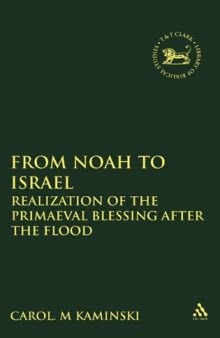 جزییات کتاب
جزییات کتاب
The primaeval blessing, 'Be fruitful and multiply, and fill the earth,' first announced to humankind in Genesis 1.28 is renewed to Noah and his sons after the flood in Genesis 9.1. There is widespread scholarly consensus that the ensuing dispersion in Genesis 10.1-32 and 11.1-9 is the means by which the creation blessing is fulfilled. Kaminski argues that the primeval blessing is not fulfilled in the Table of Nations and that Yahweh's scattering Noah's descendants in the Babel story does not contribute positively to the creation theme. Rather, the creation blessing is being taken up in the primary line of Shem (Genesis 11.10-26), which leads directly to Abraham. She further suggests that divine grace is not absent after the Babel judgment, as is commonly assumed, but is at work in the Shemite genealogy. She argues that the primeval blessing, which is unfulfilled in the primaeval history, is taken up by Abraham and his descendants by means of a divine promise. While the blessing is in the process of being realised in the patriarchal narratives, it is not fulfilled. The multiplication theme is resumed, however, in Exodus 1.7, which describes Israel's proliferation in Egypt. This is the first indication that the creation blessing is fulfilled. Realisation of the primaeval blessing progresses after the flood, therefore, from Noah to Israel. Yet God's blessing on Israel is not for their sake alone - it is the means through which the divine intention for creation will be restored to the world. JSOTS413



 دانلود کتاب
دانلود کتاب

 جزییات کتاب
جزییات کتاب





 این کتاب رو مطالعه کردید؟ نظر شما چیست؟
این کتاب رو مطالعه کردید؟ نظر شما چیست؟
